

The Justice Rising Blog aims to highlight grassroots organizations who are stiving to advance the rule of law. If you would like to highlight your organization, send us an email at [email protected]!
Name of Organization : Community Empowerment and Development Team (CEDT)
Title of Project: Participatory Technical Community Mapping and Action Planning: A Grassroots Approach towards Securing Tenure in Poor Communities in Cambodia.
Project Location(s) : Phnom Penh and Battambang Province
Project Approach: The goal is to develop internal strength and organization of poor communities in Cambodia to work independently, so that they become able to articulate their priorities and take action towards improvement of their housing conditions, security of tenure, and ultimately achieve their housing rights on the long-term.
Activities:
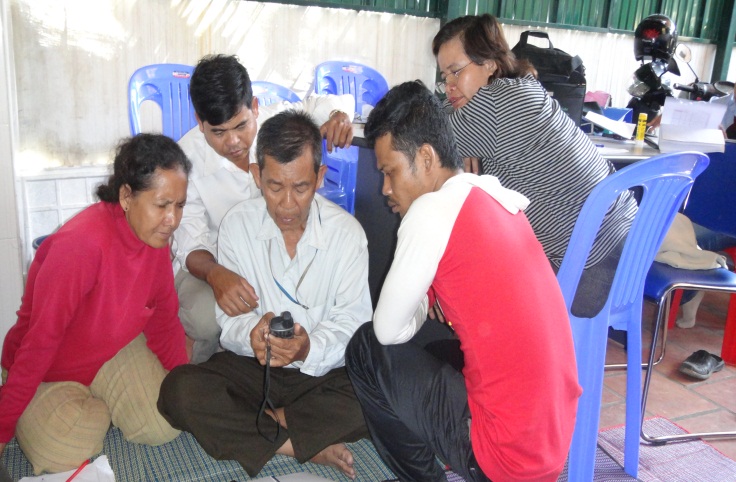
Activity 1: Carry out Community Mapping and Documentation Training (hand drawn and GIS map) in Phnom Penh and Battambang
Train the community with skills in hand drawn/technical community mapping (GPS/GIS map) so that they can use these skills to organize themselves to create community-led proposals for improvements and to interlink hand drawn maps and statistic information.
After the statistic information and physical community maps are completed by communities and local authorities, CEDT assists them to digitalize these maps with clear communities’ boundary, delineating infrastructures and significant land use. Then, when GIS maps is completed communities will bring these digital maps and alternative plans to commune chief and have discussion about alternative plans for development.
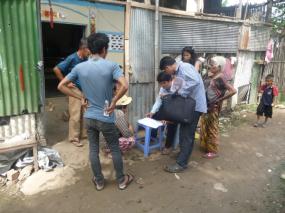
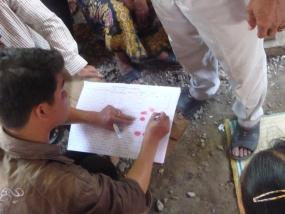
Activity2: Implementation of action plan for Circular03 in Battambang
CEDT worked intensively to assist 4 focused communities in Battambang to prepare a proposal for upgrading on site (land sharing or re blocking) and to submit to Municipality of Battambang and help in the process for getting approval for the proposed upgrading plan. CEDT worked with the communities prepare realistic proposal and negotiate in a clear way to get a good result that gave community better upgrading and living condition, and it became important first step for tenure security and good example for other community in Battambang and other province also.
Activity 3: Follow up of community action plan in Battambang
Second activity was to follow up community action plans in 6 communities in Battambang, where new communities were undergoing community mapping. After community mapping, the community members and local authorities together come up with community action planning toward strengthening savings, housing improvement and infrastructures development. The purpose was to build capacity of communities in order to take correct actions in accordance with problems, needs, and potential of community resources.
As a result, CEDT helped community leaders, local authorities and community members from 9 settlements in Battambang to work collaboratively to identify their housing solutions. CEDT facilitated discussions for community members to discuss and create competitive proposals to submit to Battambang Municipality for on-site upgrading and included tenure security (re-blocking plan and statistic households’ information and community profiles). This required negotiating with Municipality and Provincial authorities to seek approval for on-site upgrading, and provide security of tenure to communities. This was one of the larger steps that CEDT (and other NGOs) took, requiring clear strategies and soft advocacy in order to change authorities’ perspective and behaviours of authorities to respond to communities’ issues. As a result, 5 settlements successfully developed re-blocking plans as housing solutions, 2 settlements received a positive response from authorities for on-site upgrading with security of tenures, and 1 received a Social Land Concession after 10 years-- these community members will get a land title.
Please describe the activities that you undertook as a part of this project. What changes (if any) did you make? Why? What was/was not successful about these activities?
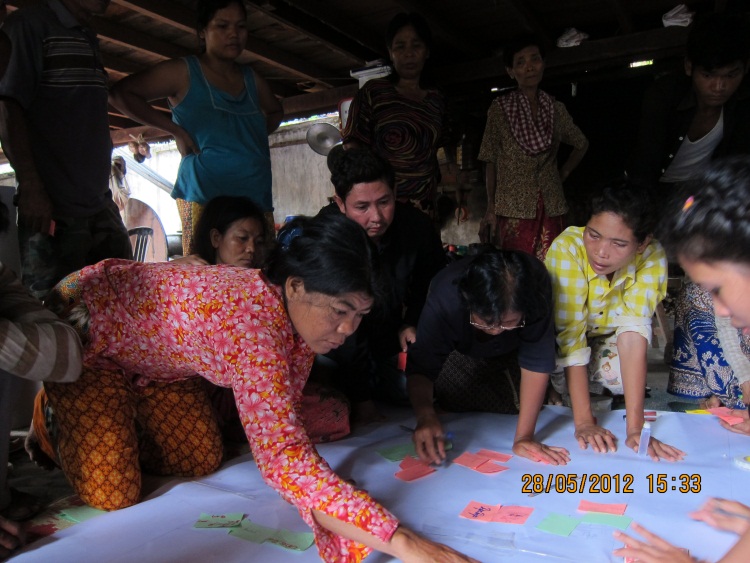
We observed that some of communities had trouble securing participation from community members. We noticed that CEDT and other NGOs often focused on capacity building, communication, and strengthening through community representatives or leaders rather than through community members. The information was shared and directed and communicated only among activists or leaders.
It looked like community representatives or leaders were strong and confident to negotiate with local authorities. In contrary, while community representatives were strong, the community members lacked involvement, unclear about information and decision making processes. Therefore, they became silent and passive. As a result, community representatives claimed community members did not like to be involved, to share, to contribute and understand. So it seemed so far this was the key situation that we needed to think more about and solve to make benefits from the project spread to all community members. We thought community building or strengthening was very important for communities since they could not reach their goal of community development and housing solutions if community members did not trust each other and encourage a habit of working together properly as common goal. From this experience, CEDT inserted topical community building and strengthening to be included in every project of CEDT such as community mapping, and followed up community action plans on technical consultation on infrastructures, and participatory housing solution proposals.
Impact:
The benefits from the project were communities and local authorities that gained skill and knowledge of community mapping and documentation. Thus equipped, communities were able to create proper housing solutions and infrastructures proposal and have the confidence to draft proposals and negotiate with authorities to support their projects. Second, authorities responded to communities’ needs and become partner to communities.
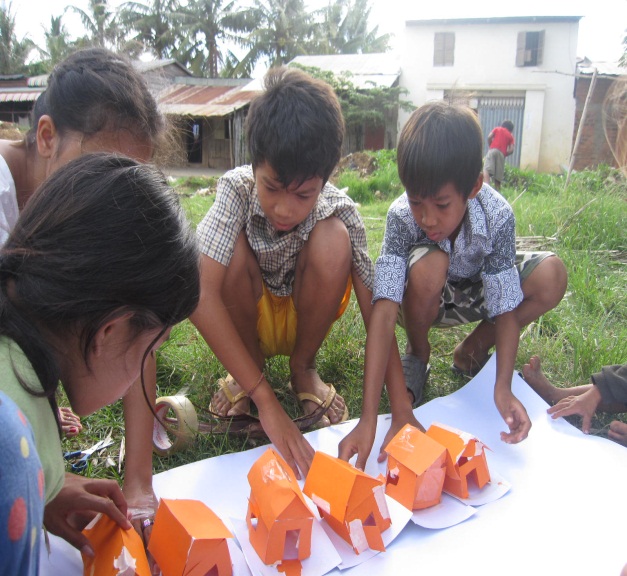
What lessons did you learn from this project? How will you use these lessons going forward? What recommendations can you offer to other individuals/organizations seeking to address this problem in your country/region and elsewhere?
From CEDT’s perspective, we were very satisfied and happy with our projects but we still need more work experience to make the clear conclusions. Already we see some good things and some challenges, and we are going to continue to observe more during continued implementation. The first is about the authorities. They are feeling more and more comfortable with the approach to support communities. NGOs give the authorities confidence, and we always communicate back and forth to authority so they never feel surprise or unhappy about some works. Second, we need to take more time and work to confirm good coordination among all NGO partners. Sometimes difficult, but we can see that if NGOs are not in good coordination then communities become confuse and not sure how to do. NGOs need to empower community and it includes showing communities coordination best practices.
Future challenges
What is the reason community / some community members are weak or less active? It can be that community members lack a culture of mutual-help, feelings of unity and group orientation, or individual opinions due to weak self-esteem and education. The pressure of income generating leaves little time to invest in community activity, contributes to lack of trust in Community leader/activists and or neighbors, feeling unsecure in community, and dearth of perspectives (no tenure security, instable income). We need to think more about all factors like these. They make CEDT’s work, and the work of all stakeholders, more difficult than expected. More work needs to be done to strengthen target communities, enabling them to play an active role in growth and development.

